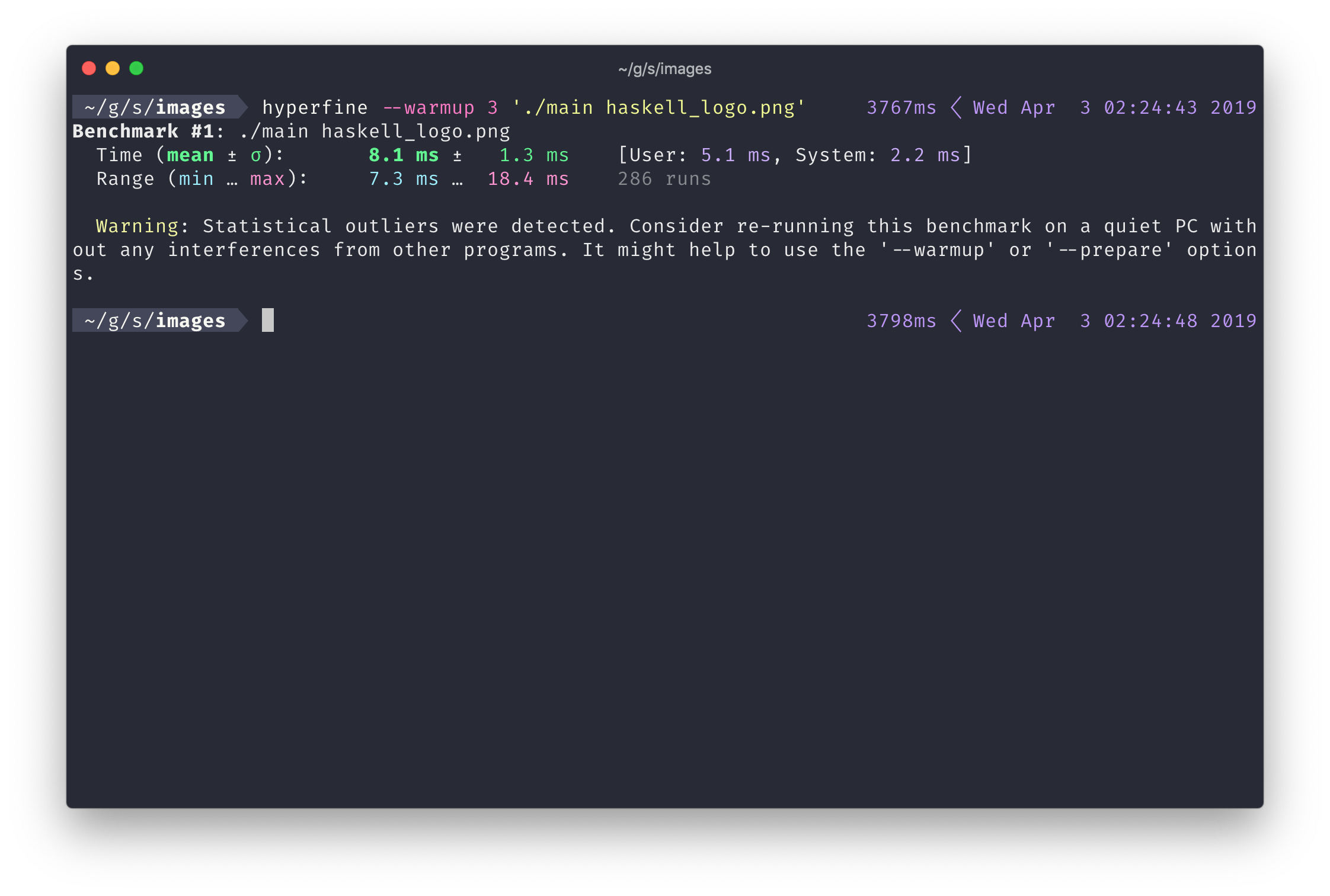Trying out Go

For a while I've been curious about Go and its relevance to Web development.
I've heard a lot of good things about the performance, its rich standard library and how it has become a first language for many PHP and Node developers.
So let's have a go at Go!
CLI App
You can view the code hosted on GitHub at azdanov/images.
Here's the finished version, since this is not a tutorial I will not explain what each part of the code does.
package main
import (
"bufio"
"encoding/base64"
"fmt"
"log"
"mime"
"os"
"path/filepath"
)
func main() {
if len(os.Args) == 1 {
log.Fatal("No arguments specified.")
}
image := os.Args[1]
file, err := os.Open(image)
if os.IsNotExist(err) {
log.Fatal("File not found.")
}
mimeType := mime.TypeByExtension(filepath.Ext(os.Args[1]))
supported := []string{
"image/svg",
"image/svg+xml",
"image/gif",
"image/jpeg",
"image/png",
}
if !inSlice(mimeType, supported) {
log.Fatal("Image type not supported.")
}
info, _ := file.Stat()
buf := make([]byte, info.Size())
fReader := bufio.NewReader(file)
_, _ = fReader.Read(buf)
data := fmt.Sprintf(
"data:%s;base64,%s",
mimeType,
base64.StdEncoding.EncodeToString(buf)
)
fmt.Print(data)
}
func inSlice(a string, list []string) bool {
for _, b := range list {
if a == b {
return true
}
}
return false
}
Original was made in PHP:
<?php
declare(strict_types=1);
array_shift($argv);
$image = array_shift($argv);
if (!$image) {
fwrite(STDERR, 'No arguments specified.');
die(1);
}
if (!file_exists($image)) {
fwrite(STDERR, 'File not found.');
die(1);
}
$mime = mime_content_type($image);
$supported = ['image/svg', 'image/svg+xml', 'image/gif', 'image/jpeg', 'image/png'];
if (!in_array($mime, $supported)) {
fwrite(STDERR, 'Image type not supported.');
die(1);
}
if ($mime === 'image/svg') {
$mime .= '+xml';
}
$data = file_get_contents($image);
die("data:${mime};base64," . base64_encode($data));
And for fun here's Node:
const { existsSync, readFileSync } = require("fs");
const { extname } = require("path");
if (process.argv.length == 2) {
process.stderr.write("No arguments specified.");
process.exit(1);
}
const image = process.argv[2];
if (!existsSync(image)) {
process.stderr.write("File not found.");
process.exit(1);
}
const extension = extname(image).substr(1);
const supported = ["image/svg+xml", "image/gif", "image/jpeg", "image/png"];
const mime = supported.find((s) => s.includes(extension));
if (!mime) {
process.stderr.write("Image type not supported.");
process.exit(1);
}
const data = readFileSync(image);
process.stdout.write(`data:${mime};base64,${data.toString("Base64")}`);
Benchmark
I was curious how much Go would outperform PHP and Node, and was pleasantly surprised.
hyperfine was used for the benchmarks.
| PHP (PHP 7.3.3) | Go (go1.12.1 darwin/amd64) | Node (v11.13.0) |
|---|---|---|
| User: 20.6ms, System: 9.8ms 74 runs | User: 5.1ms, System: 2.2ms 286 runs | User: 72.9ms, System: 18.7ms 30 runs |
 |  |  |
Finish
I didn't expect Node to be that slow compared to PHP. I guess PHP is performant enough for most Web related tasks.
So in conclusion Go is really an interesting language, there is a good reason it's called the C language of the web.